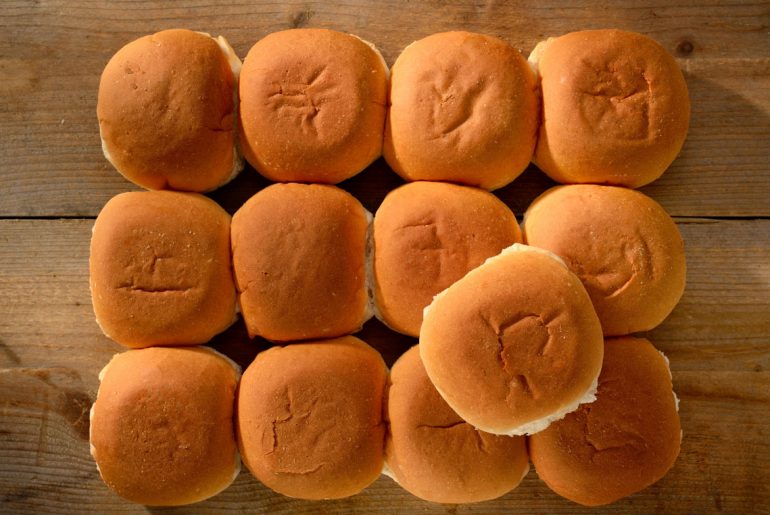Ask for a dozen roses from a florist or a dozen eggs from a farmer, and you’ll expect to receive an even 12 items. But if you ask a baker for a dozen doughnuts, you could go home with 13, or a baker’s dozen. Not that we’re complaining, but why do bakers have their own unit of measurement?
The next time you’re snacking on that 13th bonus treat, you can thank crooked bakers back in medieval England. According to Encyclopedia Britannica, there were laws that regulated that a loaf of bread was worth the price of the wheat used to make it. Bakers caught overpricing undersized loaves — apparently a practice common enough to necessitate regulation — saw harsh penalties including fines, beatings, and jail time.
Anyone who has ever made baked goods knows that getting them to come out the same size isn’t easy. In the Middle Ages, most bakers didn’t have the luxury of a scale to help weigh their bread dough, either. Fearing the consequences, law-abiding bakers began to throw in an extra roll — sometimes two — to ensure they wouldn’t wind up paying a painful penalty later.
Also see, Alton’s Brown’s genius meatball hack you’ll want to copy.




